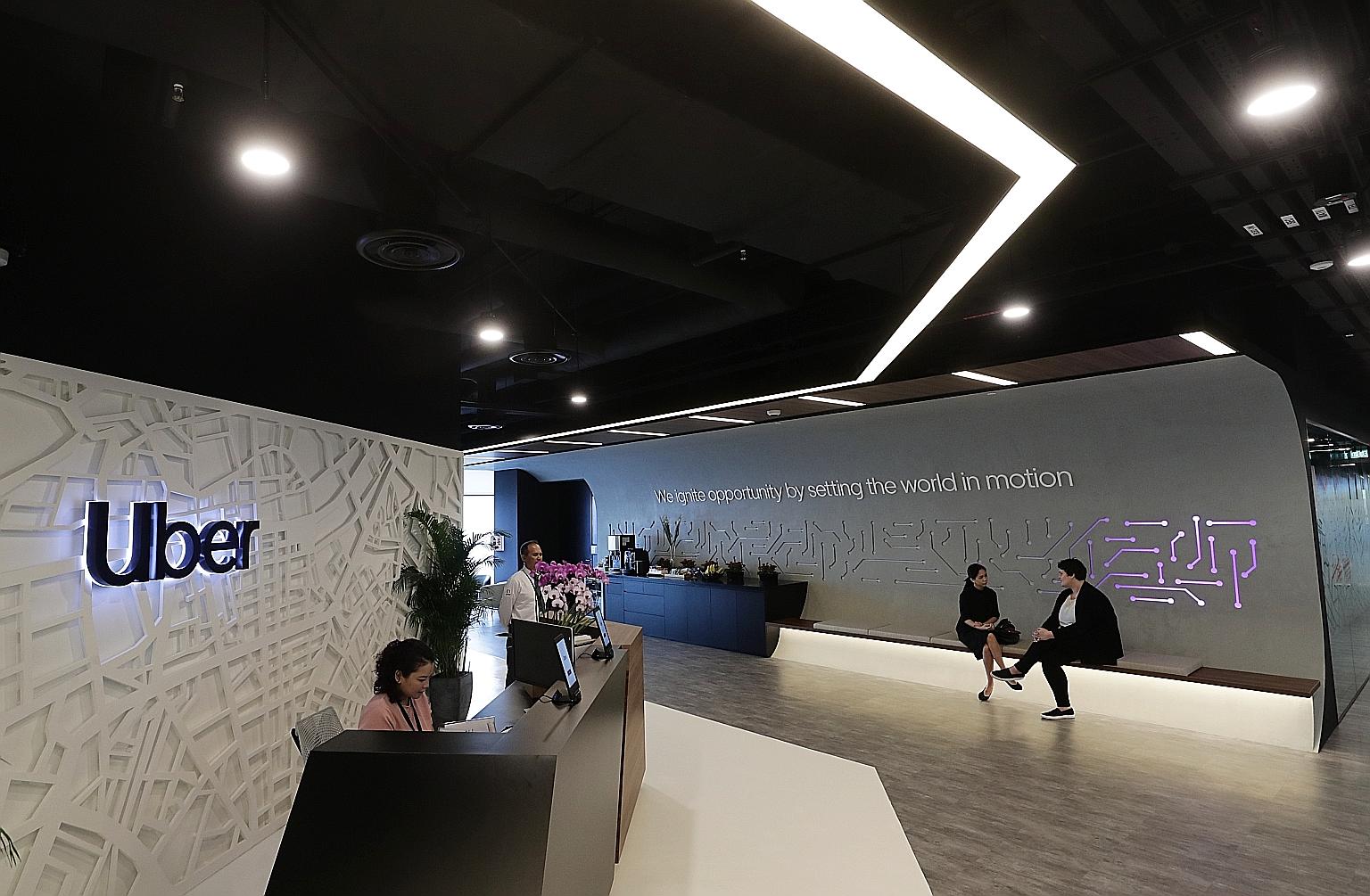Uber to move Asia-Pacific HQ out of Singapore as virus impact worsens
Ride-hailing giant will also lay off 3,000 more staff globally and focus on its core business
Sign up now: Get ST's newsletters delivered to your inbox

Uber's Asia-Pacific hub at Frasers Tower in Cecil Street, which the firm will close in the next 12 months as it relocates to another city in the region.
ST FILE PHOTO
Follow topic:
Ride-hailing giant Uber will move its Asia-Pacific headquarters out of Singapore in the next 12 months, as the coronavirus pandemic continues to rattle its business, and relocate to another city in the region.
The United States-based firm will also lay off about 3,000 more people globally and stop some of its investments unrelated to its core businesses of ride hailing and delivery.
The layoffs and eventual closure of the Singapore office will hit around 120 jobs, Uber said.
It opened its Asia-Pacific hub at Frasers Tower in Cecil Street in April last year to support its operations in India, Bangladesh, Sri Lanka, Japan, South Korea, Taiwan, Hong Kong, Australia and New Zealand.
Uber announced a first round of job cuts on May 6, affecting about 3,700 full-time staff from its customer support and recruiting teams. The move will incur about US$20 million (S$28 million) in costs related to severance and other termination benefits.
Uber planned to provide laid-off workers with at least 10 weeks' pay and continue providing health benefits till the end of this year.
The latest layoffs mean global headcount will be slashed by about a quarter.
Chief executive Dara Khosrowshahi said: "Given the dramatic impact of the pandemic and the unpredictable nature of any eventual recovery, we are concentrating our efforts on our core mobility and delivery platforms and resizing our company to match the realities of our business.
"We are making these hard choices now so that we can move forward and begin to build again with confidence."
The ride-hailing business has suffered a near-total collapse as large parts of the US and the rest of the world shut down to combat the spread of the coronavirus.
Nearly two-thirds of Uber's revenue is generated in the US and Canada, where stay-home orders were issued in the middle of March.
The company said trip requests had plummeted 80 per cent globally and it lost nearly US$3 billion last month.
Besides the Singapore hub, Uber is also closing about 45 of its offices.
The company, which is also in talks with Grubhub to reinforce its food delivery business, said it plans to reduce investments in several non-core projects.
For example, it will close its AI Labs special projects team.
"We are taking a hard look at our overall cost structure and our other bets to ensure our core business of rides and eats emerges stronger than ever," Mr Khosrowshahi said at a recent quarterly earnings call.
The ride-share giant noted that it was seeing strong revenue growth for its Eats food delivery operation.
It reported a 53 per cent rise in revenue for the Eats takeaway delivery service in the first three months of this year, as more people ordered in to avoid the coronavirus.
Its network of drivers puts Uber in a position to expand into delivering groceries, medicine, retail purchases and more with minimal investment, Mr Khosrowshahi added.
An IBM survey this month found that more than half of those who used ride-sharing apps planned to reduce or stop using these services completely.
Meanwhile, some analysts felt ride-share services or bicycle and scooter options such as those offered by Uber might benefit from people wanting to avoid mass transit while getting around.
"The reality is the world has changed, so we don't know when the recovery is going to be," Mr Khosrowshahi said.
"We are going to take the actions that we think are necessary."
THE BUSINESS TIMES, REUTERS, AGENCE FRANCE-PRESSE

